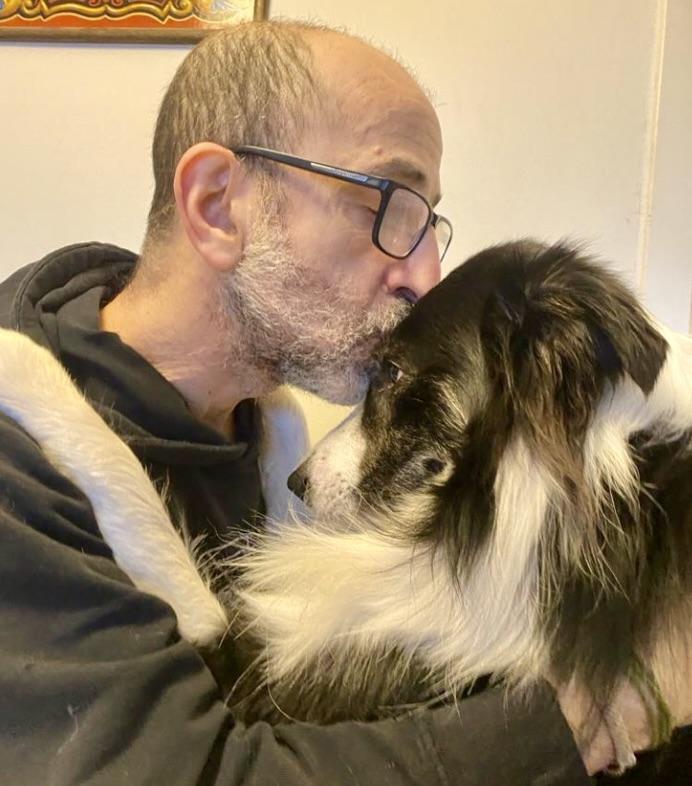12 million to the history of salmon farming, sustainability, and Norway’s role in Chile
Ernesto Semán at the University of Bergen has been awarded 12 million NOK from the Research Council of Norway for the project DARKLAX. Through an interdisiplinary approach DARKLAX will tell the history of salmon farming in Chile and the role Norway has played.

Main content
The project DARKLAX – The Dark Side of Sustainability: Norway and the Rise and Fall of Salmon Farming in Chile. A transnational history of the future (1970-2030) has successfully passed through the needle’s eye of FRIPRO funding at the Research Council of Norway and will receive NOK 12 million over three years. The project is highly interdisciplinary and will examine salmon farming in Chile from various perspectives. The goal is to show what consequences the rise of the salmon industry has had and continues to have, both for the economy, society, environment, nature, and the salmon itself.
FRIPRO is the Norwegian Research Council’s funding scheme for basic and applied research that is curiosity-driven and bold.
Ernesto Semán at the Department of Foreign Languages, University of Bergen, has submitted the application and will lead the project alone, but will involve other researchers in various fields: marine biologists, veterinarians, oceanographers, and environmental historians, both in Norway and internationally. Ernesto is a historian, born and educated in Argentina, but has lived in the USA for 20 years. He has worked as a researcher, a political attaché and advisor to the Argentine government, a journalist, and has published several books, including novels.
Why a project about the history of salmon farming?
Ernesto welcomes us to his office, along with the even more welcoming Border Collie Pelusa, named after football player Maradona’s childhood nickname.
When asked why on earth an associate professor at the Department of Foreign Languages would spend three years on a research project about salmon farming, Ernesto replies that salmon farming is an important part of both Chile’s and Norway’s history. Salmon farming plays a significant economic role in both countries – in both Chile and Norway the industry is the second largest, only surpassed by copper in Chile and oil and gas in Norway. Aquaculture, with salmon farming as its flagship, is also the fastest-growing food industry in the world.
For him, the salmon industry is a place where many interests and questions meet: How to provide enough food for the world’s population? How do we relate to the nature around us? What consequences does the technology we use in exploiting natural resources have for the planet we inhabit ? And not least: What does sustainability mean? Sustainability for whom – humans or the rest of nature?
The story of the great salmon adventure
In the history of salmon farming in Chile, Norway has played a significant role, as a model – with its positive image associated with values like democracy, conflict resolution, welfare, clean nature, etc. – but also more concretely: Salmon farming companies in Chile looked to Norway to study how salmon farming was conducted.
Eventually, Norwegian salmon farming companies like Cermaq and Marine Harvest (now Mowi) came to account for large parts of the Chilean salmon production. In Chile, the conditions were favorable, as regulation and legislation were far more liberal than in Norway. The result was a number of deaths among salmon farm workers, a sky-high use of antibiotics, and countless salmon escapes.
This was part of the background for the protests the Norwegian royal couple faced during their visit to southern Chile in 2019. Also, developments by Norwegian Statkraft in Chilean areas considered sacred by indigenous people, have made Norway unpopular in the south.
In Chile, fish farming was initially associated with many positive goals: The production of more nutritious food, prevention of overfishing, and increased export revenues. The industry led to a significant improvement in living conditions in remote areas that otherwise struggled with unemployment and poverty. But the welfare came at a price – not least for nature.
What about the salmon?
Ernesto also wants to give the salmon a voice in this hisstory. In Latin America, salmon is an alien species that was introduced by salmon farming. DARKLAX will include analysis of otoliths in farmed and escaped salmon to map the fish’s migrations, living conditions, age, and much more. Many of the conditions in areas where escaped fish have found their way are completely unsuitable for salmon due to heat, pollution, etc.
In addition, genetic tests will be able to document where the salmon originally comes from, such as the USA and Norway.
Based on individual salmon specimens, information will be collected in a digital archive that will document various aspects of salmon farming in Chile. How the industry has manipulated and changed the salmon itself, into a fish that is quite different from the original, is another question that will be looked into.
Dissemination
It is essential to Ernesto that the history of the rise of the salmon industry should point the way for the future. Salmon farming has complex and extensive consequences for people, society, and nature that are important to illuminate and discuss. The plans are for DARKLAX to disseminate its findings through a monograph, two conferences, a documentary, and a PhD.
